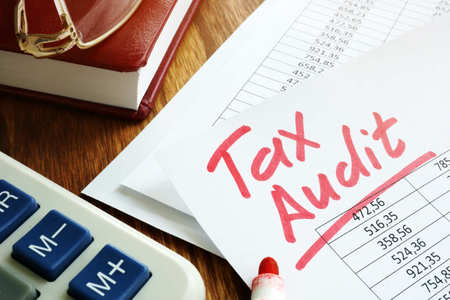
If there is one thing you as a taxpayer want to avoid, it is being audited by the IRS. While the chances of it are usually very slim, there are certain red flags that do get the attention of IRS officials now and then. Whether it is tax returns for individuals or those connected to a business, an IRS audit will be very detailed, time-consuming, and could potentially lead to criminal charges being filed against you, depending of course on the alleged violations. Rather than have these circumstances occur, it is always best to work closely with your CPA so that you will be aware of these nine red flags that can trigger an audit.
1. Reporting Incorrect Taxable Income
Whether you are a full-time employee or self-employed, reporting an incorrect taxable income will get the attention of the IRS. Since the agency receives copies of whatever W-2 and 1099 forms you receive, it will know exactly how much income you earned. When a discrepancy occurs on your tax return, expect the IRS to start asking questions.
2. Large Donations, Small Income
While making large donations to various charities is always a great thing to do, it will be a red flag to the IRS if you are doing so while reporting a very small income. Since these two things are generally not compatible, you should keep all receipts associated with your charitable donations, and also work with your CPA to ensure you follow IRS guidelines for your donations.
3. Deducting High Business Expenses
If you are a business owner or perhaps a salesperson who regularly takes clients to dinner to finalize important deals, expect the IRS to carefully scrutinize the business expenses you claim as deductions on your tax return. While it is acceptable for you to deduct as much as 50% of the cost of a reasonably-priced business dinner, doing so over and over for large amounts will always be a red flag to the IRS.
4. I Use My Car for Business
One of the oldest red flags for potential audits, stating that you use your car for business purposes will likely have the IRS asking you many questions along the way. To prove your tax return is correct, you should keep detailed records of your mileage as well as dates and times for when you used your car for business. If you can, also write down your starting and ending destinations, since these can lend more credibility to your deductions.
5. Nothing but Round Numbers
While your CPA would love to see a perfect world where everything wound up equaling nice, round numbers, they know that's not how the world works. Unfortunately, the IRS knows this as well, which is why when you always submit tax returns that contain figures such as these, you ensure the red flag rises at the IRS office. In these situations, the IRS will probably think you are either pulling figures out of thin air, or at the least are keeping horrible records of your transactions. To avoid an audit, provide your CPA with all available receipts, since this will let them use the actual numbers on your forms.
6. Your Business Always Loses Money
While it is not unusual for a business owner to report their business lost money now and then, doing so year in and year out will garner the attention of IRS agents. Thus, if you have a full-time business and have reported on your tax returns that your business has lost money for at least three of the past five years, you can probably expect to be audited. To make sure all goes well in the end, have as much documentation as needed to show your business has simply hit a rough patch, and is usually profitable.
7. Unforced Errors
Hey, mistakes happen, even on tax returns. Depending on the type of form you are using when filing, how many deductions you may be claiming, and so forth, it's always possible to make an unforced error on your tax return. From claiming an incorrect tax credit to filing under the wrong status, these types of errors may get you more attention from the IRS than you anticipated. Fortunately, if you work with a CPA when filing your taxes, they can carefully check your returns with your records to ensure no mistakes are made prior to filing.
8. The Home Office
Should you simply have a computer positioned on a desk in your home, this does not constitute an official home office in the eyes of the IRS. However, this doesn't stop people from trying to abuse this deduction each and every year. To be in the clear when claiming a home office, you need to have an area of your home that is used for the majority of your work and for little if any personal use. Should questions arise, listen to the advice of your CPA.
9. Dramatic Change in Your Income
In today's topsy-turvy world, it is of course always possible you could have a dramatic change in your income, either for the better or for the worse. If this should occur and the IRS starts taking a look at your previous tax returns, it may want some answers from you as to what has transpired. This is especially likely if you have made large cash deposits into your bank account recently, so be prepared for additional scrutiny. To protect yourself, keep all records and documentation related to your change in income, and also discuss your situation with a CPA you know and trust.
While most people assume an IRS audit automatically means large fines and possibly criminal penalties will follow, this happens far less often than is realized. Instead, having the proper documentation and being honest about any mistakes or discrepancies will usually help to clear up the matter. By doing so and hiring a CPA who is experienced in these matters, tax season can be one filled with relaxation rather than apprehension.
